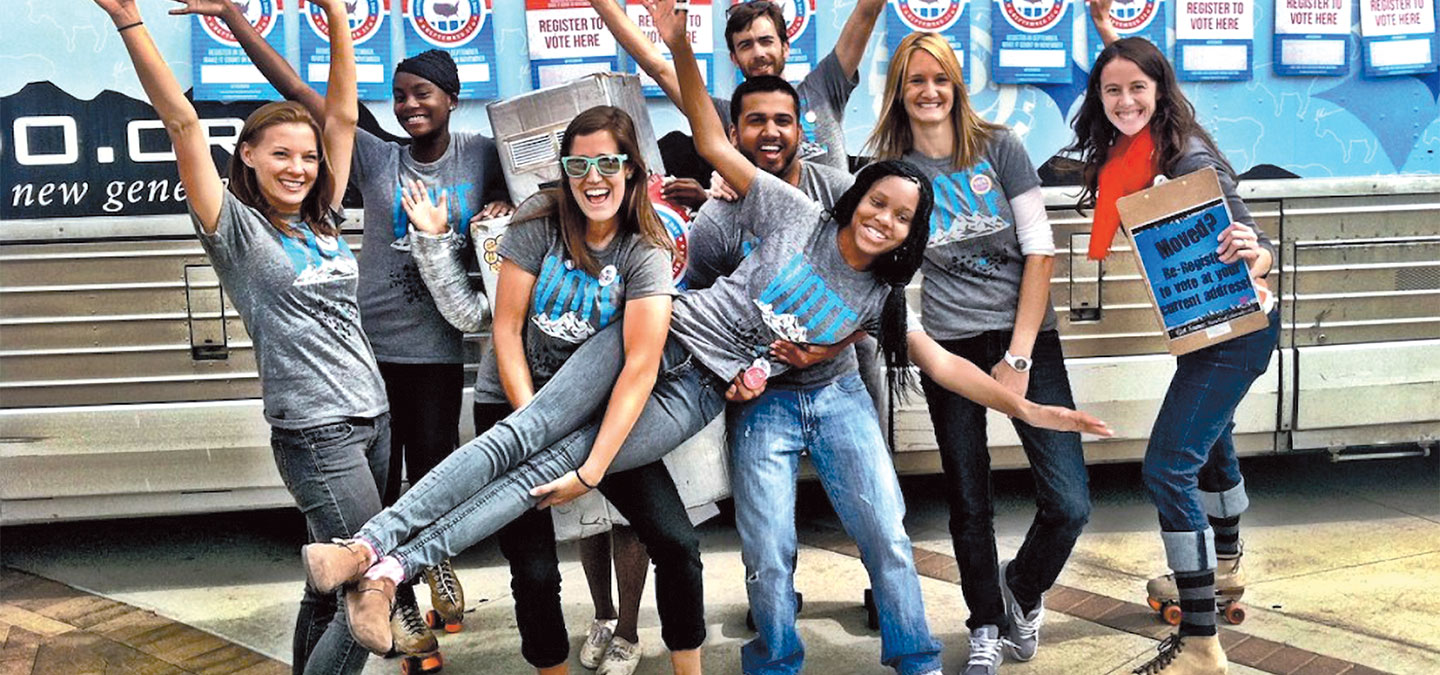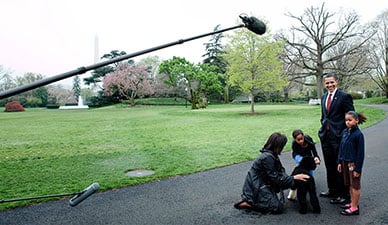7) Bust election myths on social media.
Sort fact from fiction on social media—especially before sharing shocking election “news.” News stories should be free of opinions and present both sides of a controversial topic. They should also support claims with trustworthy sources (think government experts, university professors). If you discover something is false, share the truth instead, including facts and sources to back up your post. (To learn more, watch our video about vetting online articles.)
8) Call or write to elected officials.
Tell local, state, and federal leaders how you feel about important issues through phone calls, letters, or emails—especially if those leaders are up for reelection. (Find contact info at usa.gov/elected-officials.) Not sure what to say? Start with: “I strongly support/oppose . . .” If enough voters contact an official, they can affect his or her decisions. Follow when and how your representative votes on issues you care about at issuevoter.org.
9) Talk politics—nicely!
Discussing the issues facing our country can broaden your perspective, especially if you talk with family and friends who have different viewpoints. But be sure to keep the conversations respectful. Here’s how: Try to speak face-to-face or over the phone, rather than over social media. Ask questions about what the other person thinks, instead of just making statements about what you believe. And aim to understand the other person’s point of view and find common ground, rather than trying to persuade him or her to switch sides.
10) Throw a debate-watching party.
Invite friends and family members to watch a debate with you in person or by video chat. (Candidates for president and vice president debate in prime time, but you may need to check local TV and radio stations for state and local candidate debates.) Set the mood by serving red-white-and-blue treats, then compare notes as you watch. Ask: What do you think of the debate format? What questions would you ask? Which ideas do you agree/disagree with?
11) Hold a fund-raiser.
A donation of money—even $5—can help support your favorite cause or candidate. Earn cash by selling toys you don’t want anymore, doing yard work for neighbors, or taking on extra chores at home. You can even start an online fundraiser. Be sure to explain what you are raising money for and why the cause is important to you.
12) Keep the election on people’s minds.
Make election signs for your front yard, post voter registration reminders on social media, or sport a T-shirt promoting your presidential pick. You can also make and share videos about why voting is important and why this election matters. Seeing how much you care about the election can inspire others to take part.
13) Get involved with local politics.
The decisions made by your local government officials can affect your daily life, so pay attention! The city council might be deciding whether to fund a new skate park, or the school board might be voting on changes to the school dress code. Attend public meetings to stay informed—either in person or virtually. (Check your town website for meeting dates.) Some public meetings include time for audience members to speak, so ask questions and share your thoughts.






